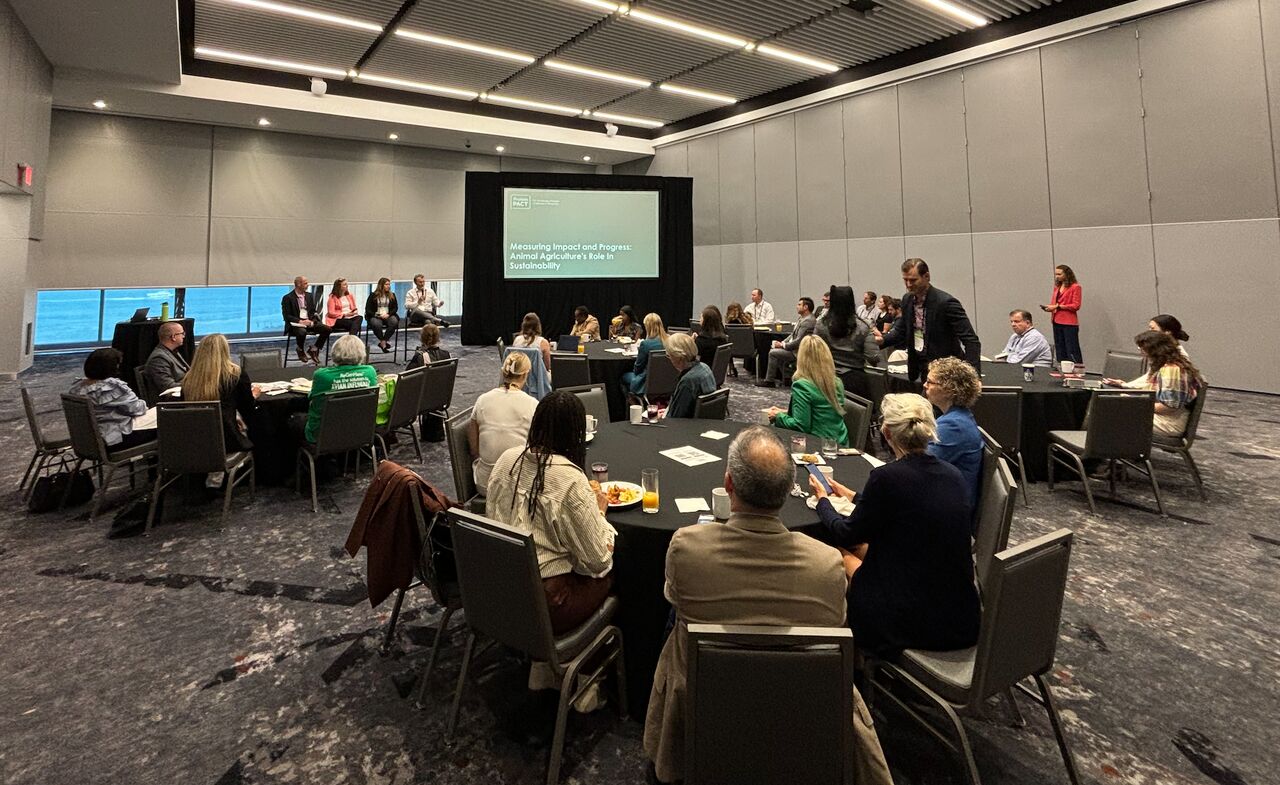
Written by: Sarah Novak | June 20, 2024
One thing we excel at in agriculture is discussing our sustainable practices within our own community. So, when the American Feed Industry Association (AFIA) had the chance to engage with “green” finance professionals, i.e., stakeholders outside of our community, at a conference in New York City last week, we said YES!
For those unfamiliar with GreenFin, it is a conference that gathers about 800 attendees from the corporate finance and sustainability sectors, financial institutions, sustainable finance, investing policymakers and institutional investors to discuss sustainable finance and investments. Animal agriculture is hardly top of mind for these folks, as evidenced by the fact that during the sessions and breakouts I attended, speakers rarely mentioned it, though crop production did come up a couple times. Much of the focus at the conference centered around the use of fossil fuels. My favorite quote from a speaker was:
“I want to create a world for my children without dependence on fossil fuels, but I don’t want a world without agriculture.”
This reassured me that at least some attendees understood the essential role of agriculture.
While at GreenFin, I participated in a panel discussion sponsored by the Protein PACT focused on measuring the impact and progress animal agriculture has made in sustainability. This was a valuable opportunity for those of us representing production agriculture to share our industry’s daily efforts in sustainability.
I discussed the need for federal regulatory solutions to bring more sustainable, novel feed additives to farmers through the Innovative Feed Enhancement and Economic Development (Innovative FEED) Act and the Enteric Methane Innovation Tools for Lower Emissions and Sustainable Stock (EMIT LESS) Act. More importantly, I highlighted how the animal food industry has made significant strides in sustainability by optimizing feed efficiency through ration innovation and feeding practices. These efforts have led to reduced emissions and resource (e.g., land, water and energy) usage, upcycling of coproducts and byproducts, and the development of innovative feed ingredients that lower enteric methane production in ruminants.
I’m grateful for groups like the Protein PACT that open doors for animal agriculture to be part of these crucial conversations. It is important for investors to understand that supporting “green” businesses is not just about financing those that will reduce energy use, but also those that are using our finite natural resources more responsibly while ensuring food security for all.
Comments See our policy on comments